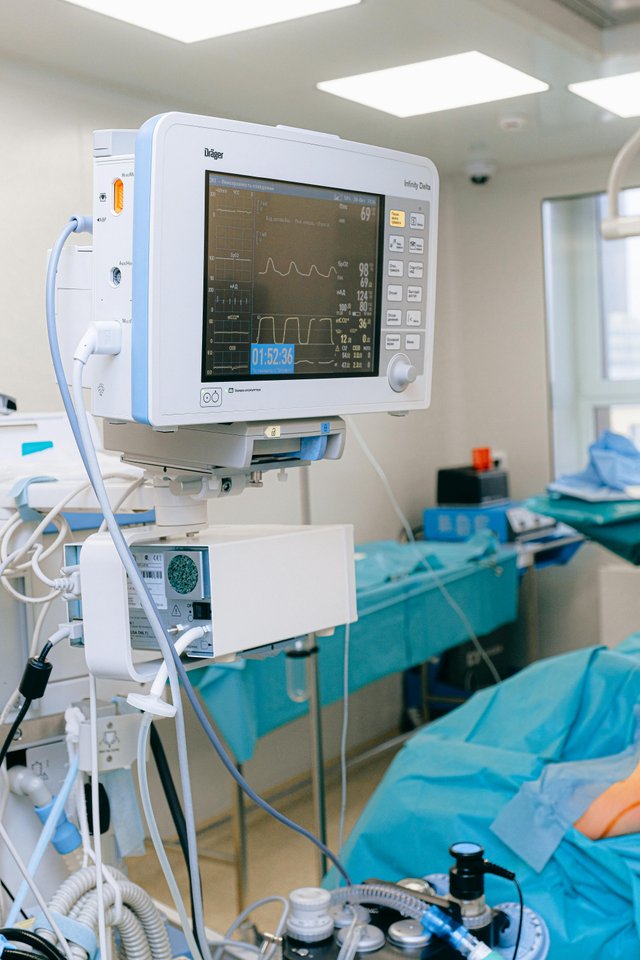THE REVOLUTION OF TECHNOLOGY IN MODERN HEALTHCARE: MAIN BENEFITS THAT ARE TRANSFORMING THE INDUSTRY
No doubts, the healthcare industry has undergone a significant transformation in recent years, driven by the widespread adoption of technology.

From electronic health records to telemedicine platforms, artificial intelligence (AI) to robotic-assisted surgery, technology has become an integral part of modern healthcare. In this article, we'll explore the 20 benefits of technology in modern healthcare, highlighting how it's improving patient care, reducing costs, and transforming the way healthcare professionals work.
1. Improved Patient Care
Technology has enabled healthcare professionals to make more accurate diagnoses, monitor patients' conditions more closely, and provide more effective treatments. For example, telemedicine platforms allow patients to consult with doctors remotely, reducing wait times and improving access to care.
2. Enhanced Data Management
Electronic Health Records (EHRs) have replaced traditional paper records, making it easier for healthcare providers to store, access, and share patient information. This improves data security, reduces errors, and streamlines the clinical workflow.
3. Increased Efficiency
Technology has automated many administrative tasks, freeing up healthcare professionals to focus on patient care. Electronic billing systems, for instance, eliminate manual billing processes and reduce paperwork.
4. Personalized Medicine
With the help of genomics and precision medicine, technology enables healthcare providers to tailor treatments to individual patients' unique genetic profiles, increasing the effectiveness of treatment outcomes.
5. Remote Monitoring
Wearable devices and mobile apps allow patients to monitor their health remotely, enabling early detection of potential issues and enabling timely interventions.
6. Telemedicine
Telemedicine platforms enable remote consultations, reducing the need for in-person visits and improving access to care for patients in remote or underserved areas.
7. Artificial Intelligence (AI) Assisted Diagnostics
AI algorithms can analyze medical images, lab results, and other data to help detect diseases earlier and more accurately, improving treatment outcomes.

8. Robot-Assisted Surgery
Robots can assist surgeons during operations, improving precision and reducing recovery times.
9. Electronic Medication Management
Electronic systems can manage medication schedules, reminders, and refill requests, reducing medication errors and improving adherence.
10. Improved Patient Engagement
Patients can access their medical records online, communicate with healthcare providers through secure messaging platforms, and receive personalized health advice through mobile apps.
11. Cost Savings
Technology can help reduce healthcare costs by streamlining administrative tasks, reducing paperwork, and improving supply chain management.
12. Data Analytics
Advanced analytics can help healthcare organizations identify trends and patterns in patient data, enabling data-driven decision-making and improving quality of care.
13. Patient Safety
Technology can reduce medical errors by alerting healthcare providers to potential medication interactions, allergies, and other safety concerns.
14. Research Advancements
Big data analytics and AI can accelerate medical research by analyzing large datasets quickly and accurately, leading to breakthroughs in disease understanding and treatment development.
15. Workforce Augmentation
Technology can supplement human care teams by automating routine tasks, freeing up healthcare professionals to focus on high-value activities like patient care and complex decision-making.
16. Patient Empowerment
Technology empowers patients to take a more active role in their health management by providing them with accessible information, tools, and resources to manage their own health.
17. Accessibility
Technology can improve access to care for underserved populations by providing remote consultations, online educational resources, and telehealth services.
18. Improved Patient Outcomes
By enabling early detection, accurate diagnosis, and personalized treatment plans, technology can improve patient outcomes and reduce hospital readmissions.
19. Quality Improvement
Technology can help healthcare organizations track quality metrics in real-time, identifying areas for improvement and ensuring that high-quality care is delivered consistently.
20. Continuity of Care
Technology enables seamless transitions between different healthcare settings by providing electronic records sharing and communication platforms.

In conclusion, the benefits of technology in modern healthcare are numerous and far-reaching. By improving patient care, reducing costs, and transforming the way healthcare professionals work, technology is revolutionizing the industry. As the pace of technological advancements continues to accelerate, we can expect even more innovative solutions to emerge in the years ahead.
Thanks for reading!